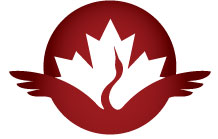[The Oregonian journalist Richard Read speaks to relief managers from Mercy Corps and Samaritan’s Purse, who claim that the Obama administration has abandoned Ronald Reagan’s “hungry-child policy” that separated food aid from politics. Read’s article, reproduced below, first appeared in OregonLive.com on 13 April 2013. –CanKor]
Relief managers from Portland-based Mercy Corps say U.S. let North Koreans starve as retribution for missile launch
By Richard Read, The Oregonian, updated April 13, 2013 at 10:55 PM

A North Korean mother lies with her acutely malnourished son, plagued by sores, at a county hospital in September 2011. (Photo by Jim White, Mercy Corps)
A 3-year-old girl weighed less than 16 pounds, surviving on saline solution and ground rice. Babies lay passively, too weak to cry. Relief workers saw stunted and wasted children languishing in unheated hospitals amid floods and reduced rations during an unusually harsh winter.
That was two years ago. Portland-based Mercy Corps and four other humanitarian organizations given rare access to North Korea warned: “a catastrophic situation is developing.” After a year of prodding, the U.S. Agency for International Development announced 120,000 metric tons of food for North Korea.
But food never reached hungry Koreans. The Obama administration let political distrust, instead of need, dictate food policy.
Communication and good will broke down, leaving White House officials little to draw on today as Pyongyang ratchets up threats of nuclear attack. Read the rest of this entry »





